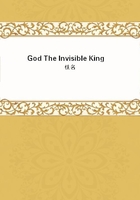
第40章
The letters that come from such types written during their sane intervals, are entirely sane. Some, who are probably unaware--Ithink they should know--of the offences or possibilities that justify their incarceration, write with a certain resentment at their position; others are entirely acquiescent, but one or two complain of the neglect of friends and relations. But all are as manifestly capable of religion and of the religious life as any other intelligent persons during the lucid interludes that make up nine-tenths perhaps of their lives. . . . Suppose now one of these cases, and suppose that the infirmity takes the form of some cruel, disgusting, or destructive disposition that may become at times overwhelming, and you have our universal trouble with sinful tendency, as it were magnified for examination. It is clear that the mania which defines his position must be the primary if not the cardinal business in the life of a lunatic, but his problem with that is different not in kind but merely in degree from the problem of lusts, vanities, and weaknesses in what we call normal lives. It is an unconquered tract, a great rebel province in his being, which refuses to serve God and tries to prevent him serving God, and succeeds at times in wresting his capital out of his control. But his relationship to that is the same relationship as ours to the backward and insubordinate parishes, criminal slums, and disorderly houses in our own private texture.
It is clear that the believer who is a lunatic is, as it were, only the better part of himself. He serves God with this unconquered disposition in him, like a man who, whatever else he is and does, is obliged to be the keeper of an untrustworthy and wicked animal. His beast gets loose. His only resort is to warn those about him when he feels that jangling or excitement of the nerves which precedes its escapes, to limit its range, to place weapons beyond its reach.
And there are plenty of human beings very much in his case, whose beasts have never got loose or have got caught back before their essential insanity was apparent. And there are those uncertifiable lunatics we call men and women of "impulse" and "strong passions."If perhaps they have more self-control than the really mad, yet it happens oftener with them that the whole intelligent being falls under the dominion of evil. The passion scarcely less than the obsession may darken the whole moral sky. Repentance and atonement;nothing less will avail them after the storm has passed, and the sedulous preparation of defences and palliatives against the return of the storm.
This discussion of the lunatic's case gives us indeed, usefully coarse and large, the lines for the treatment of every human weakness by the servants of God. A "weakness," just like the lunatic's mania, becomes a particular charge under God, a special duty for the person it affects. He has to minimise it, to isolate it, to keep it out of mischief. If he can he must adopt preventive measures. . . .
These passions and weaknesses that get control of us hamper our usefulness to God, they are an incessant anxiety and distress to us, they wound our self-respect and make us incomprehensible to many who would trust us, they discredit the faith we profess. If they break through and break through again it is natural and proper that men and women should cease to believe in our faith, cease to work with us or to meet us frankly. . . . Our sins do everything evil to us and through us except separate us from God.
Yet let there be no mistake about one thing. Here prayer is a power. Here God can indeed work miracles. A man with the light of God in his heart can defeat vicious habits, rise again combative and undaunted after a hundred falls, escape from the grip of lusts and revenges, make head against despair, thrust back the very onset of madness. He is still the same man he was before he came to God, still with his libidinous, vindictive, boastful, or indolent vein;but now his will to prevail over those qualities can refer to an exterior standard and an external interest, he can draw upon a strength, almost boundless, beyond his own.
5. BELIEVE, AND YOU ARE SAVED
But be a sin great or small, it cannot damn a man once he has found God. You may kill and hang for it, you may rob or rape; the moment you truly repent and set yourself to such atonement and reparation as is possible there remains no barrier between you and God.
Directly you cease to hide or deny or escape, and turn manfully towards the consequences and the setting of things right, you take hold again of the hand of God. Though you sin seventy times seven times, God will still forgive the poor rest of you. Nothing but utter blindness of the spirit can shut a man off from God.
There is nothing one can suffer, no situation so unfortunate, that it can shut off one who has the thought of God, from God. If you but lift up your head for a moment out of a stormy chaos of madness and cry to him, God is there, God will not fail you. A convicted criminal, frankly penitent, and neither obdurate nor abject, whatever the evil of his yesterdays, may still die well and bravely on the gallows to the glory of God. He may step straight from that death into the immortal being of God.
This persuasion is the very essence of the religion of the true God.
There is no sin, no state that, being regretted and repented of, can stand between God and man.